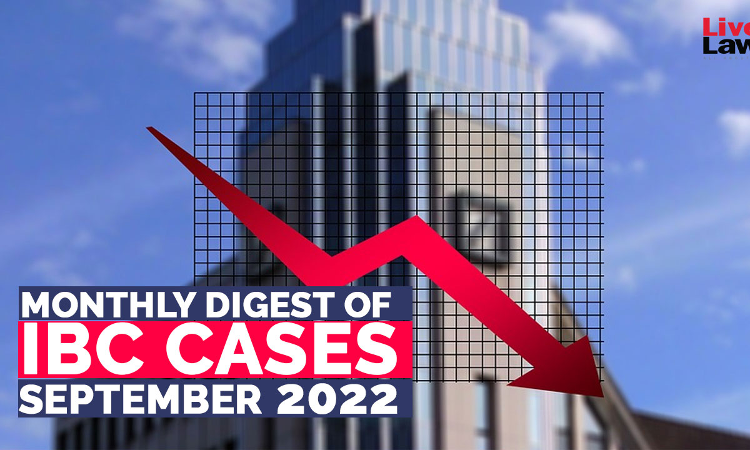- Home
- /
- News Updates
- /
- Monthly Digest Of IBC Cases:...
Monthly Digest Of IBC Cases: September 2022
Pallavi Mishra
1 Oct 2022 2:30 PM IST
Supreme Court IBC - Approval Of A Resolution In Respect Of One Borrower Cannot Discharge A Co-Borrower: Supreme Court Case Title: Maitreya Doshi vs Anand Rathi Global Finance Ltd Case No.: 2022 LiveLaw (SC) 789, CA 6613 OF 2021 The Supreme Court Bench comprising of Justices Indira Banerjee and JK Maheshwari has held that approval of a resolution in respect of one borrower...
Next Story



